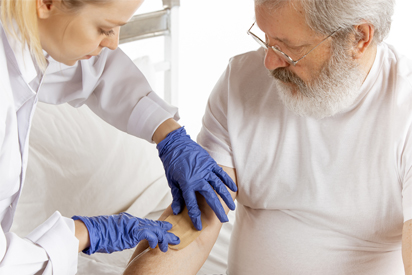
Malaria and dengue are two of the most prevalent and potentially deadly mosquito-borne diseases affecting millions of people worldwide. As these diseases continue to pose significant public health challenges, understanding their detection, treatment, and prevention is crucial. This blog explores effective strategies for shielding against malaria and dengue, emphasizing the role of early detection, appropriate treatment, and preventive measures, with a special focus on the services provided by pathology labs in Kolkata & Bhopal
Understanding Malaria and Dengue
Malaria
Malaria is caused by Plasmodium parasites transmitted through the bites of infected Anopheles mosquitoes. Symptoms typically include fever, chills, headache, and muscle aches. If left untreated, malaria can lead to severe complications such as anemia, organ failure, and death.
Dengue
Dengue fever is caused by the dengue virus, which is transmitted by Aedes mosquitoes. Symptoms include high fever, severe headache, pain behind the eyes, joint and muscle pain, rash, and mild bleeding. Severe dengue can lead to dengue hemorrhagic fever or dengue shock syndrome, both of which can be fatal.
Detection of Malaria and Dengue
Early detection of malaria and dengue is essential for effective treatment and prevention of complications. Pathology labs in Kolkata play a vital role in the early detection and diagnosis of these diseases through various diagnostic tests.
Malaria Detection
- Microscopic Examination: Blood smears are examined under a microscope to identify the presence of malaria parasites.
- Rapid Diagnostic Tests (RDTs): These tests detect specific antigens produced by malaria parasites and provide results within 15-30 minutes.
- Polymerase Chain Reaction (PCR): PCR tests are highly sensitive and can detect low levels of malaria parasites in the blood.
Dengue Detection
- NS1 Antigen Test: This test detects the presence of dengue virus antigen in the blood and is most effective during the first few days of infection.
- IgM and IgG Antibody Tests: These tests identify antibodies produced by the body in response to dengue infection.
- PCR Test: PCR tests can detect the genetic material of the dengue virus and are useful for early diagnosis.
Treatment of Malaria and Dengue
Prompt and appropriate treatment is crucial for managing malaria and dengue and preventing severe complications.
Malaria Treatment
- Antimalarial Medications: The choice of medication depends on the type of malaria parasite and the severity of the infection. Common antimalarials include chloroquine, artemisinin-based combination therapies (ACTs), and quinine.
- Supportive Care: Patients may require hospitalization for intravenous fluids, blood transfusions, and other supportive treatments in severe cases.
Dengue Treatment
- Supportive Care: There is no specific antiviral treatment for dengue. Management focuses on relieving symptoms through rest, hydration, and pain relief.
- Monitoring: Severe cases may require hospitalization for monitoring and management of complications such as severe bleeding and shock.
Prevention of Malaria and Dengue
Preventive measures are key to reducing the incidence and spread of malaria and dengue. Here are some effective strategies for prevention:
Malaria Prevention
- Insecticide-Treated Nets (ITNs): Sleeping under ITNs significantly reduces the risk of malaria transmission.
- Indoor Residual Spraying (IRS): Spraying insecticides on the interior walls of homes kills mosquitoes that come into contact with treated surfaces.
- Antimalarial Prophylaxis: Travelers to malaria-endemic areas can take antimalarial medications to prevent infection.
Dengue Prevention
- Eliminating Mosquito Breeding Sites: Remove standing water from containers, flowerpots, and other places where mosquitoes breed.
- Use of Insect Repellents: Apply insect repellents containing DEET, picaridin, or oil of lemon eucalyptus to exposed skin.
- Wear Protective Clothing: Wear long-sleeved shirts and long pants to minimize mosquito bites.
- Community Awareness: Educate communities about dengue prevention and control measures.
Role of Health Care Diagnostic Clinic & Laboratory Services
HCDC is equipped with advanced diagnostic tools and trained professionals to provide accurate and timely detection of malaria and dengue. Regular health check-ups and early diagnosis play a crucial role in effective disease management and prevention.
Conclusion
Shielding against malaria and dengue requires a multifaceted approach that includes early detection, prompt treatment, and effective prevention strategies. Pathology labs in Kolkata & Bhopal are integral to this process, providing essential diagnostic services and supporting public health efforts. By staying informed and taking proactive measures, individuals and communities can significantly reduce the impact of these diseases and protect their health.

